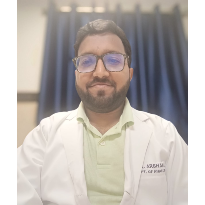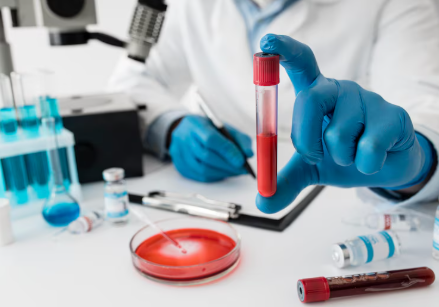Course Description
Fellowship in Haematology – Advancing Expertise in Blood Disorders and Therapies
A Fellowship in Haematology is a specialized postgraduate program designed for medical professionals seeking advanced knowledge and clinical skills in diagnosing, treating, and managing a wide spectrum of blood-related disorders. This includes conditions such as anemia, hemophilia, leukemia, lymphoma, clotting disorders, myeloma, and other hematological malignancies. The program bridges the gap between internal medicine and pathology, equipping healthcare providers with a deep understanding of both benign and malignant haematologic diseases.
The fellowship typically spans 12 to 24 months, depending on the institution and country, and may include a mix of didactic lectures, clinical rotations, laboratory exposure, and hands-on training. Fellows gain practical experience in bone marrow aspiration and biopsy, transfusion medicine, flow cytometry, coagulation studies, and molecular diagnostics. This multidisciplinary approach ensures that participants are well-versed in both clinical and laboratory haematology, enabling them to make informed and accurate diagnoses while designing effective treatment plans.
Accredited fellowships often collaborate with recognized bodies such as the Royal College of Physicians, NHS, eIntegrity, and other global healthcare institutions. Participants may engage in research, audits, and case presentations to develop critical thinking, evidence-based practice, and academic leadership. Emphasis is also laid on patient-centered care, communication skills, ethical considerations, and inter-professional collaboration.
One of the key advantages of pursuing a Haematology Fellowship is the career advancement it offers. Graduates can pursue roles in specialized haematology units, cancer centers, transfusion services, and teaching hospitals. With the rising incidence of blood cancers and genetic blood disorders worldwide, there is a growing demand for qualified haematologists in both clinical and academic settings.
In the era of personalized medicine, haematology is rapidly evolving, with advancements in targeted therapies, immunotherapy, gene editing, and stem cell transplantation. A fellowship ensures that professionals stay abreast of the latest diagnostic tools and therapeutic strategies. Whether the goal is to enhance current practice, contribute to research, or transition into a specialty career, a Fellowship in Haematology provides a solid foundation for lifelong learning and impactful healthcare delivery.
Highlights
- 12 Months of online classes which includes 3-4 months of Clinical Observership in a leading hospital.
- Classes by experienced faculties
- Flexible learning mode
- Live doubt clearing sessions
- Educator support through LMS
- Periodic Webinars
- Associated with UGC & GRADE NAAC A++ University
- Training with Reputed Hospital
What You’ll Learn
- Advanced Knowledge of Haematological Disorders
- Diagnostic Skills
- Clinical Competency
- Transfusion Medicine
- Laboratory Integration
- Research & Academic Skills
- Therapeutic Planning
- Stem Cell & Bone Marrow Transplantation (Basics)
- Ethics & Communication
- Career Readiness
Course Highlight
Modules Comprehensive modules covering various aspects of nutrition & dietetics.
Assessments Quizzes, assignments to test your knowledge and skills.
Certification Certified Nutritionist credential upon completion.
Key Features
Comprehensive Curriculum
Covers both benign and malignant haematological conditions including anemia, leukemia, lymphoma, bleeding/clotting disorders, and myeloma.
Blended Learning Format
Combination of live online sessions, interactive case discussions, self-paced modules, and clinical exposure.
Hands-on Clinical Training
Practical experience in procedures like bone marrow aspiration/biopsy, blood smear analysis, and transfusion protocols.
Laboratory & Diagnostic Skill Development
In-depth exposure to haematology labs, including flow cytometry, coagulation studies, cytogenetics, and molecular testing.
Course Structure
Objectives:
- Understand the principles and practices of laboratory techniques used in haematology.
- Learn normal and abnormal blood cell morphology.
Topics Covered:
- Introduction to haematology lab setup and biosafety
- Blood collection techniques and anticoagulants
- Complete Blood Count (CBC): Principles, instruments, and interpretation
- Peripheral blood smear: Preparation, staining (Romanowsky stains), and examination
- Identification of normal and abnormal red cells, white cells, and platelets
- Reticulocyte count and its clinical relevance
- Bone marrow aspiration and biopsy: Techniques and morphology
- Quality control and assurance in haematology labs
Competencies:
- Perform and interpret peripheral smear analysis
- Identify morphological features of various blood disorders
Objectives:
- Understand the pathophysiology, classification, diagnosis, and management of common
- Cytopenias.
Topics Covered:
- Classification and etiologies of anaemia (nutritional, haemolytic, aplastic, etc.)
- Diagnostic algorithm for anaemia (CBC, reticulocyte index, iron studies, B12/folate levels)
- Leukopenia: Causes, differential diagnosis, and management
- Neutropenia and agranulocytosis: Causes, infections, and G-CSF therapy
- Thrombocytopenia: Classification (immune vs. non-immune), ITP, TTP, DIC
- Pancytopenia and bone marrow failure syndromes
- Drug-induced cytopenias
Competencies:
- Diagnose and manage patients with different types of anaemia and cytopenias
- Interpret lab data in clinical contexts
Objectives:
- Master the mechanisms, diagnostic evaluation, and clinical management of bleeding and thrombotic disorders.
Topics Covered:
- Physiology of primary and secondary haemostasis
- Platelet function disorders (Bernard-Soulier, Glanzmann's)
- Coagulation factor deficiencies (e.g., Haemophilia A/B, von Willebrand disease)
- Hypercoagulable states (Protein C/S deficiency, antiphospholipid syndrome)
- Laboratory tests: PT, aPTT, TT, INR, D-dimer, mixing studies
- DIC and thrombotic microangiopathies
- Anticoagulant therapy: Heparin, warfarin, DOACs
- Thromboelastography (TEG)
Competencies:
- Evaluate and manage bleeding disorders
- Design treatment strategies for thrombosis and anticoagulation
Objectives:
- Understand the diagnostic approach and underlying haematological causes of lymphadenopathy and splenomegaly.
Topics Covered:
- Physiology and pathological enlargement of lymph nodes and spleen
- Reactive vs. malignant lymphadenopathy
- Infections, autoimmune causes, and neoplasms
- Diagnostic workup: Imaging, FNAC, excisional biopsy, flow cytometry
- Clinical relevance of splenomegaly in haematological diseases
- Hypersplenism and its haematologic effects
- Approach to hepatosplenomegaly in systemic illnesses
Competencies:
- Perform clinical evaluation and formulate differential diagnosis
- Understand indications for biopsy and advanced testing
Objectives:
- Gain an in-depth understanding of pathogenesis, diagnosis, and treatment of haematological cancers.
Topics Covered:
- Classification of leukaemias: Acute (AML, ALL) and chronic (CML, CLL)
- Lymphomas: Hodgkin and non-Hodgkin types
- Multiple myeloma and plasma cell dyscrasias
- Myelodysplastic syndromes and myeloproliferative neoplasms
- Role of cytogenetics and molecular testing (BCR-ABL, FLT3, JAK2)
- Flow cytometry and immunophenotyping
- Chemotherapy, targeted therapy, bone marrow transplantation
- Supportive care in oncology
Competencies:
- Recognize clinical presentations and interpret relevant investigations
- Plan and monitor appropriate treatment protocols
Objectives:
- Learn the genetics, clinical features, and management of inherited disorders of haemoglobin.
Topics Covered:
- Normal haemoglobin structure and synthesis
- Thalassemias (alpha and beta): Types, diagnosis, management
- Sickle cell disease: Pathophysiology, crises, complications
- Haemoglobin electrophoresis and HPLC interpretation
- Prenatal diagnosis and genetic counseling
- Role of transfusions, chelation therapy, and hydroxyurea
- Bone marrow/stem cell transplantation
Competencies:
- Diagnose and manage common haemoglobinopathies
- Interpret haemoglobin analysis and plan long-term care
Objectives:
- Develop skills in research planning, statistical analysis, and evidence-based evaluation.
Topics Covered:
- Types of research: Observational, interventional, cohort, case-control
- Research ethics and informed consent
- Study design and sampling techniques
- Data collection methods and bias minimization
- Basic biostatistics: Mean, SD, p-values, confidence intervals
- Use of SPSS/R for data analysis
- Critical appraisal of medical literature
- Writing a scientific manuscript and understanding peer-review
Competencies:
- Design and conduct research projects
- Critically analyze scientific articles for evidence-based practice
Eligibility
- MBBS Graduates
- Practicing Doctors (MBBS+MD/MS/M.Ch)
- MBBS+MD And DNB Residents
- Undergraduate Medical Students In The Final Year
Course Fee
Course Fee ₹155,000.00
Registration Fee ₹10,000.00
Total Fee ₹130,000.00

Dr. Arshan Ali
MBBS(MAMC)|MDAnaesthesia &Critical Care (LHMC) | EDAIC Senior Resident– Anaesthesiology, Lady Hardinge Medical College & Hospital Member - EDAIC– European Diploma in Anaesthesiology and Intensive Care (ESAIC) Member - Indian Society of AnaesthesiologistsWhy Choose Us
Because your growth deserves nothing but the best in medical education.

Expert-Driven Curriculum
Our program is designed in collaboration with leading healthcare professionals to ensure you receive the most up-to-date and relevant education.

Flexible Learning Environment
Access course materials online anytime, allowing you to balance your studies with your professional and personal commitments.

Comprehensive Support
Benefit from continuous support from experienced tutors and academic advisors dedicated to your success

Interactive Learning
Engage with a variety of interactive learning tools, including real-life case studies, practical assignments, and virtual simulations.

Networking Opportunities
Connect with a diverse community of learners and professionals, providing valuable networking opportunities and peer support

Affordable Education
We offer competitive pricing with flexible payment plans and financial aid options to make your education more accessible.

Recognized Certification
Obtain a certification that is respected and recognized in the healthcare industry, enhancing your professional credentials and career prospects

Career Support
Beyond education, we provide comprehensive career guidance, job placement assistance guarantee, and ongoing professional development support.
What Our Alumni Are Saying
Discover How MedJoin Global Healthcare Is Transforming Careers Worldwide.
Frequently Asked Questions
Fellowship in Haematology is an advanced postgraduate program designed to provide in-depth knowledge and clinical training in diagnosing and managing blood-related disorders such as anemia, leukemia, lymphoma, and coagulation disorders.
Medical graduates (MBBS), MD/DNB holders in Internal Medicine, Pathology, or related specialities, as well as practicing physicians looking to specialize in haematology, are eligible to apply.
The fellowship typically ranges from 6 to 12 months, depending on the institution and course structure. Some programs may include additional clinical rotations or research components.
Most programs offer a blended format—combining live online sessions, recorded lectures, and optional hands-on or clinical training at affiliated hospitals or labs.
The curriculum includes benign and malignant haematological disorders, transfusion medicine, bone marrow examination, lab diagnostics, flow cytometry, and an introduction to stem cell transplantation.
Yes, many fellowships include hands-on training in clinical settings or labs, allowing you to perform diagnostic procedures like bone marrow aspiration and blood smear analysis.
Yes, participants receive a certificate upon successful completion, which is valuable for career advancement and professional recognition.





